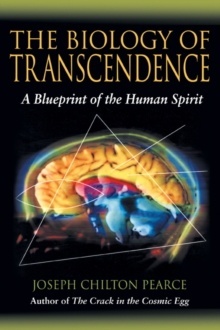The Biology of Transcendence
A Blueprint of the Human Spirit

Editorial Simon x{0026} Schuster Ltd
Fecha de edición agosto 2004 · Edición nº 1
Idioma inglés
EAN 9781594770166
288 páginas
Libro
encuadernado en tapa blanda
Dimensiones 155 mm x 228 mm
Resumen del libro
Why do we seem stuck in a culture of violence and injustice? How is it that we can recognize the transcendent ideal represented by figures such as Jesus, Lao-tzu, and many others who have walked among us and yet not seem to reach the same state? In The Biology of Transcendence Joseph Chilton Pearce examines the current biological understanding of our neural organization to address how we can go beyond the limitations and constraints of our current capacities of body and mind--how we can transcend. Recent research in the neurosciences and neurocardiology identifies the four neural centers of our brain and indicates that a fifth such center is located in the heart. This research reveals that the evolutionary structure of our brain and its dynamic interactions with our heart are designed by nature to reach beyond our current evolutionary capacities.
We are quite literally, madeto transcend. Pearce explores how this "biological imperative" drives our life into ever-greater realms of being--even as the "cultural imperative" of social conformity and behavior counters this genetic heritage, blocks our transcendent capacities, and breeds violence in all its forms. The conflict between religion and spirit is an important part of this struggle.
But each of us may overthrow these cultural imperatives to reach "unconflicted behavior," wherein heart and mind-brain resonate in synchronicity, opening us to levels of possibility beyond the ordinary.








